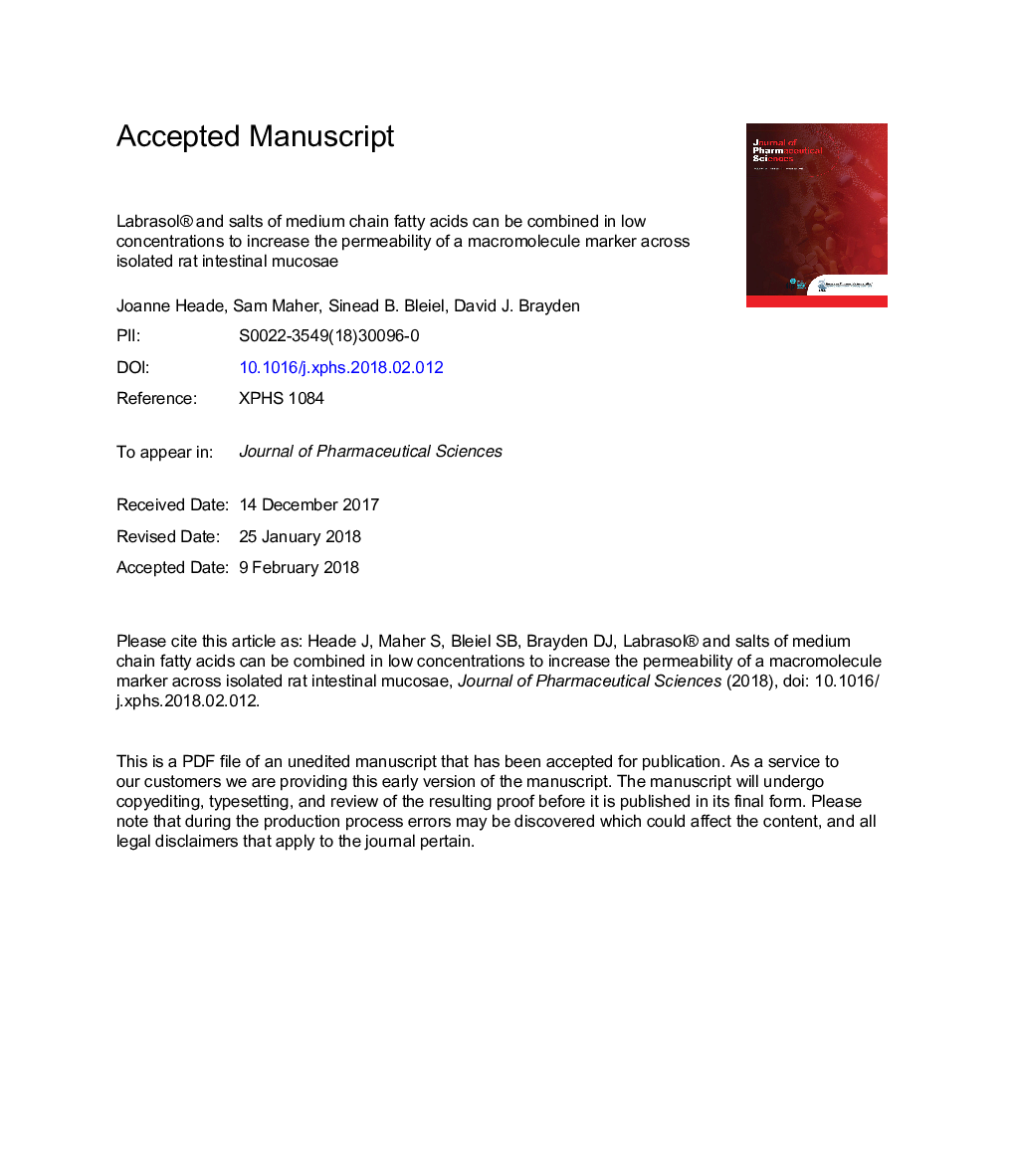| Article ID | Journal | Published Year | Pages | File Type |
|---|---|---|---|---|
| 8513280 | Journal of Pharmaceutical Sciences | 2018 | 26 Pages |
Abstract
In addition to their solubilizing properties, excipients used in lipid-based formulations can improve intestinal permeability of macromolecules. We determined whether admixing of medium-chain fatty acid (MCFA) permeation enhancers with a lipoidal excipient (Labrasol®) could potentiate transepithelial flux of a poorly permeable macromolecule (fluorescein isothiocyanate dextran 4 kDa [FD4]) across rat intestinal mucosae mounted in Ussing chambers. Low concentrations of sodium caprate (C10), sodium undecylenate (C11:1), or sodium laurate (C12) combined with Labrasol® increased the apparent permeability coefficient (Papp) of FD4 to values typically seen with higher concentrations of MCFAs or Labrasol® alone. For example, combination of C11:1 (0.5 mg/mL) with Labrasol® (1 mg/mL) increased the Papp of FD4 by 10- and 11-fold over the respective individual agents at the same concentrations where no enhancement was evident. The increased enhancement ratios seen with the combinations were associated with some perturbation in intestinal histology and with attenuation of an epithelial functional measure, carbachol-stimulated inward short-circuit current. In conclusion, combining three MCFAs separately with Labrasol® increased the Papp of FD4 to values greater than those seen for MCFAs or Labrasol® alone. Ultimately, this may permit lower concentrations of MCFA to be used in combination with other excipients in oral formulations of poorly permeable molecules.
Keywords
ΔIscMCFAC10CCHTEERC12FD4lbfSodium capratemedium-chain fatty acidKrebs-Henseleit bufferepithelial delivery/permeabilityOral drug deliveryMacromolecular drug deliveryPeptide deliveryPermeation enhancerBCsbiopharmaceutics classification systemapparent permeability coefficientBioavailabilityLipid-based formulationSodium laurateTrans-epithelial electrical resistancePapppolyethylene glycolPEGCarbachol
Related Topics
Health Sciences
Pharmacology, Toxicology and Pharmaceutical Science
Drug Discovery
Authors
Joanne Heade, Sam Maher, Sinead B. Bleiel, David J. Brayden,
